How To Apply Henna For Gray Hair
A comprehensive guide to giving an auburn tinge to your silver strands with natural ingredients.
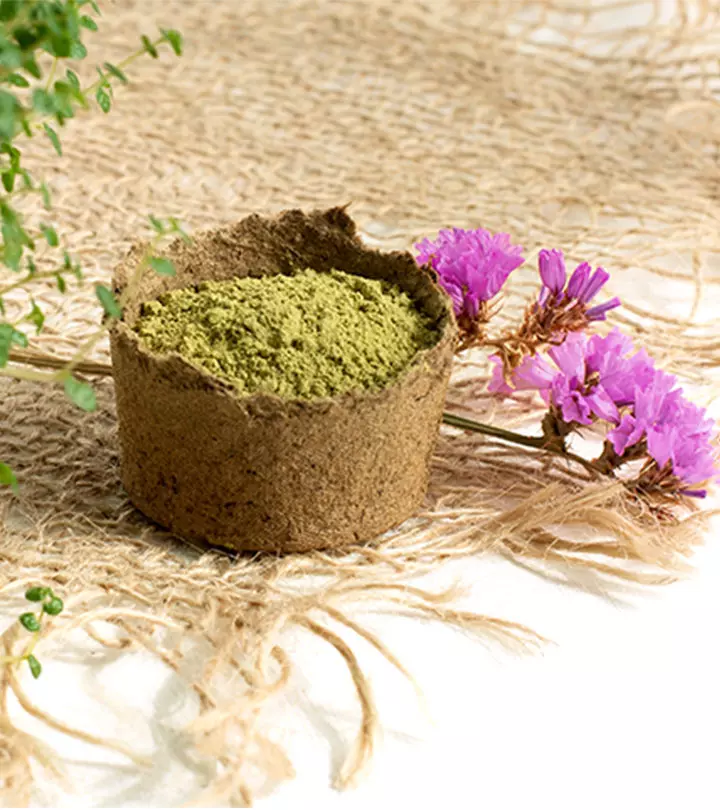
Image: Shutterstock
Covering your gray hair with commercial hair dyes leaves your hair vulnerable to chemicals that may damage your hair. Have you considered using a natural plant-based hair dye like henna for gray hair? Henna, commonly known as mehendi, colors hair in an enchanting reddish-orange shade. It is traditionally used in hair care to keep hair thick, and has antimicrobial properties that help in scalp and hair protection (1). Keep reading to know how to dye your hair with henna to ensure full gray coverage.
In This Article
What Is Henna?
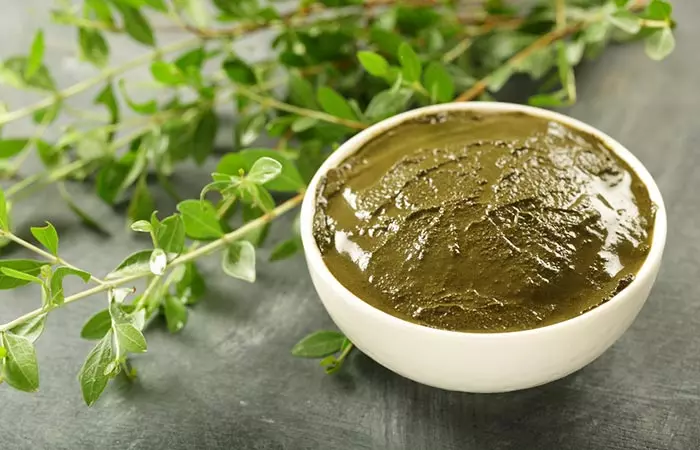
Henna leaf or Lawsonia inermis is cultivated throughout India. It is popularly used as a natural hair dye, for body art, and is known for its medicinal and therapeutic properties (2). Natural henna leaves an auburn color on the hair. However, the color may differ as per the variety of henna leaf used.
It gives an instant cooling effect and has antimicrobial properties. Henna extract is effective against the acne-causing S. aureus bacteria and may help minimize scalp acnei Pimples or breakouts that appear on the scalp when hair follicles get clogged with oil and dead skin cells. .
Traditionally, mehendi or henna is believed to increase hair strength, promote hair growth, and add luster to it. However, there is no scientific proof for these claims. Henna is commonly used to cover gray hair and is a popular alternative for chemical hair dyes.
Henna also offers certain benefits for hair. In fact, it is one among the most popular hair masks. Learn more in the next section.
Key Takeaways
- Henna lends an auburn color to the hair strands and covers your gray hair effectively.
- Apply a mixture of henna, black tea, lemon juice, and water to conceal your grays.
- Though side effects are rare, commercial black hennas may cause allergic reactions.
Benefits Of Henna For Hair
Henna is renowned for its medicinal values that are attributed to its antioxidant, anti-inflammatory, antibacterial, and anticancer properties (3). It may help reduce the androgen content in the skin’s tissues and improve hair growth and thickness (4). Henna leaf extracts possess antimicrobial properties and may help combat common bacterial skin infections (1). In studies, formulations containing henna also showed antimicrobial activity against mucous membrane infections and other infections caused by Candida, Staphylococcus aureus, and E. coli (5). Anecdotal evidence suggests that henna may also naturally condition your hair, locking in moisture and increasing its luster.
Apart from these benefits of henna for hair, the leaf’s major use, as we saw, lies in possibly reversing gray hair. But how effective is it in this regard? Continue reading to learn more.
 Fun Fact
Fun FactDoes Henna Cover Gray Hair?
Yes. Henna acts as a chemical-free hair dye that can help in gray hair coverage while leaving an auburn or reddish-orange tint on the strands. However, the results may differ depending on your natural hair color.
Adding other herbal ingredients like jatamansi, kuth, kattha, and amla (Indian gooseberry) and coffee with henna can help in hair nourishment and produce a significant coloring effect to cover gray hair effectively (6). These herbal ingredients also help in hair breakage prevention. The next section explains how you can use henna to cover gray hair. It also shows you how long to leave henna on hair, so read on!
How To Cover Gray Hair With Henna: A Complete Guide
Gather the ingredients that you may need. They include:
- 1-2 tablespoons of black tea leaves
- 2-3 tablespoons of henna powder (adjust the quantity)
- 2-3 cups of water
- ½ teaspoon of lemon juice
- Applicator brush
- A mixing bowl
- An old T-shirt
Step 1: Boil Black Tea Leaves
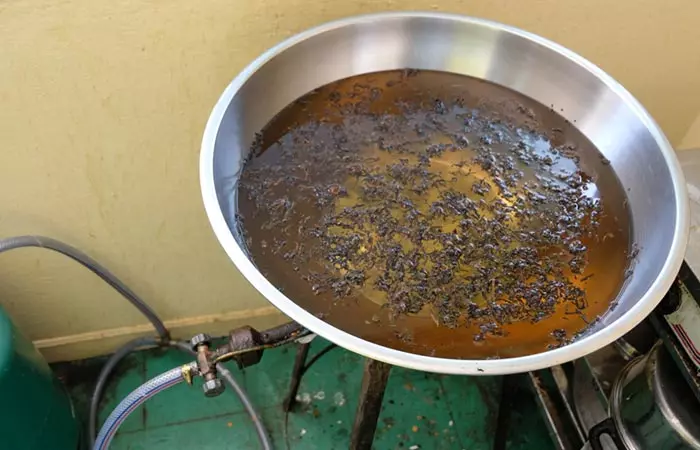
Boil the black tea leaves in water for a while. Once it starts bubbling, let it simmer on low heat until the water reduces to half. The water should be in proportion to the quantity of henna powder you use. Always use natural henna powder rather than those which come with a developer.
Step 2: Prepare A Henna Mask
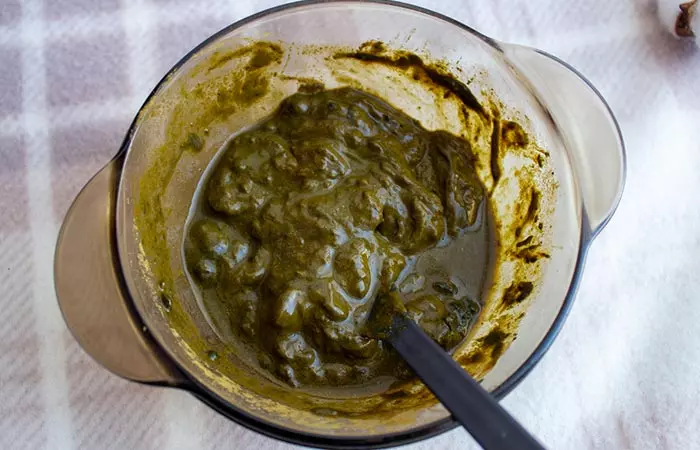
Soak the henna powder in water for around 8 hours or overnight. Mix the henna paste, black tea, and lemon juice. You can also add some amla powder to this mixture. However, this is optional.
Step 3: Apply The Mask
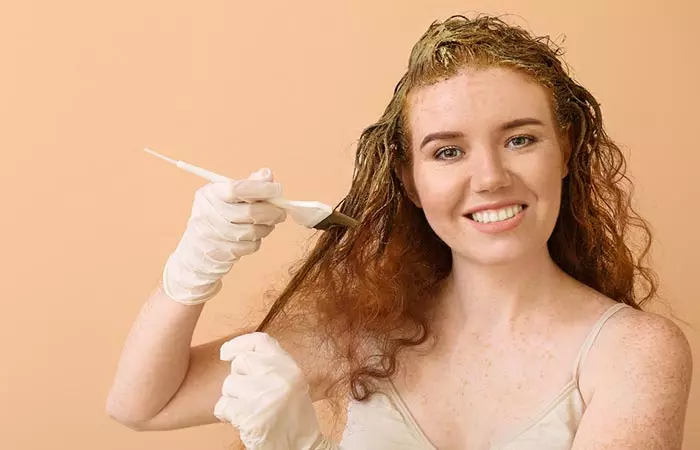
Wear the old T-shirt to avoid staining and then section your hair. Use the applicator brush to cover the section from root to tip. Repeat with all the hair sections. Wear a disposable shower cap to keep the hair intact and wait for at least 30 minutes for the hair to absorb the paste.
Step 4: Wash It Off
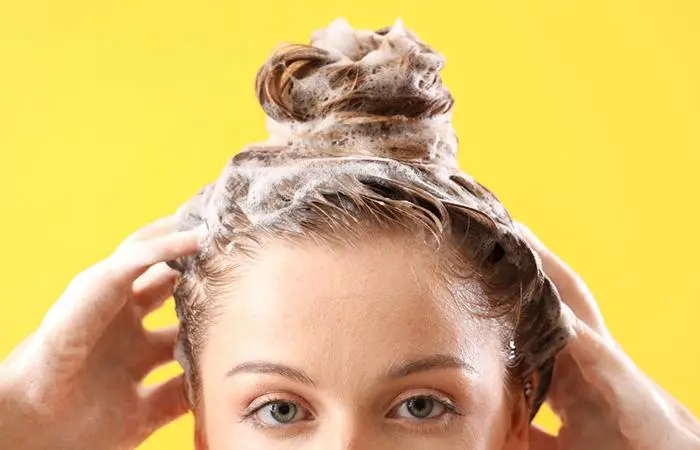
Rinse off the paste with cold water. Ensure to wash thoroughly and apply a conditioner to the hair. Do not shampoo right away and let the color settle. You may shampoo your hair the next day. It is not a permanent hair dye, so you can apply henna once or twice a month.
Check out this video for a better understanding:
Brandi, a hair blogger, shared her experience of coloring her hair with henna. She said, “My hair went from a copper brown to a deep red which I am happy about! Since my previous hair color was a light color, the red shows up well. However, the black roots that have grown out didn’t change much, they probably just got darker (i).”
Henna is considered safe for the skin. Animal studies show that it may treat androgenetic alopeciai Permanent hair loss due to genetic reasons that causes baldness in both men and women in different patterns. (4). So it is also known as henna hair treatment. However, you may experience a few side effects.
Side Effects Of Henna
Henna may cause allergic reactions, and you may experience the following symptoms:
- Itchiness
- Dryness
- Sore and red eyes
- Redness
- Blisters
However, these side effects are rare and often caused by commercial black henna containing synthetic ingredients like PPDi Para-phenylenediamine, a common compound present in hair dyes that has been linked to cancer and mutagenicity (mutating genes). .
If you observe any of these side effects, consult your doctor without any further delay.
If you are applying henna to your hair, here is a set of precautions you need to follow.
Precautions To Take While Applying Henna
- Do a patch test to prevent allergic reactions.
- Do not apply henna if you have existing scalp conditions or blisters or wounds on your scalp.
- If you have a cold or fever, do not apply henna. It has a cooling effect and may further aggravate your condition.
- Ensure that your hair is tangle-free. The henna paste may cause tangles and may be difficult to wash off.
- Always use a glass bowl to mix the paste as metal bowls may react with the ingredients.
- Coat the hairline and skin near the nape with Vaseline or petroleum jelly to prevent staining.
- Always wear disposable plastic gloves before applying henna to prevent staining.
- Do not apply henna on oily hair as the oil may prevent color absorption.
- Do not leave henna on your hair for more than 45 minutes as it can affect hair hydration and if it dries out completely, it can be difficult to wash it out.
- Apply cucumber slices or cooling eye pads if you experience a burning sensation in the eyes post henna application.
- Always opt for 100% natural henna, without added chemicals or dyes, to prevent possible allergic reactions and achieve the best results.
 Quick Tip
Quick TipInfographic: How to Use Henna To Cover Gray Hair
There is no denying that losing hair pigmentation and premature graying is a common hair issue. There are medical therapies that can help correct it, but if you are unsure about them the best course of action is to turn to natural remedies that help in hair restoration, and henna should be on your list of choices.
If you’ve always wanted to use henna, check out the infographic below for a quick, step-by-step tutorial on how to do it right. Illustration: StyleCraze Design Team
Using henna for gray hair is an excellent and healthy alternative to synthetic and harmful dyes. It gives the gray hair a reddish-orange shade while also improving your scalp and hair health through its antimicrobial properties. Also, you can add more ingredients to intensify the color and boost hair maintenance. Although henna is considered safe for use, it may cause minor side effects, like itchiness, dryness, and red eyes. However, these are mostly associated with hennas containing synthetic ingredients. Do a patch test before using henna to avoid the risk of adverse effects.
Frequently Asked Questions
How long does henna last on gray hair?
Once you color your gray hair with henna, the color should last about 7-9 weeks.
How often can I henna my hair?
You can color your hair with henna once every month.
Can henna be removed from hair?
Henna is a permanent color. If you want to remove it from your hair, apply a lot of warm oil to your strands (until it is dripping). Wrap your hair in a shower cap. Leave it on for a few hours or overnight. Then, wash it off with warm water and shampoo. You may need to repeat this process a few times to remove the color. You can also use a baking soda rinse to lighten henna-colored hair.
What steps should I take if I have an allergic reaction to henna?
If you experience an allergic reaction to henna, stop using it immediately. Wash the area with soap and water, apply a cold compress, and consult a doctor for further guidance.
Illustration: How To Apply Henna For Gray Hair

Image: Stable Diffusion/StyleCraze Design Team
Witness the transformative effects of a henna and amla hair pack as it offers a vibrant, chemical-free solution for those pesky gray strands, revealing a lustrous and rejuvenated mane effortlessly. Check out this insightful video for more information.
Personal Experience: Source
StyleCraze's articles are interwoven with authentic personal narratives that provide depth and resonance to our content. Below are the sources of the personal accounts referenced in this article.
i. My Henna experiencehttps://hairinsights.wordpress.com/2011/11/17/my-henna-experience/
References
Articles on StyleCraze are backed by verified information from peer-reviewed and academic research papers, reputed organizations, research institutions, and medical associations to ensure accuracy and relevance. Read our editorial policy to learn more.
- Antimicrobial Efficacy of Henna Extracts
https://www.ncbi.nlm.nih.gov/pmc/articles/PMC3273913/ - Modulatory effect of henna leaf (Lawsonia inermis) on drug metabolising phase I and phase II enzymes antioxidant enzymes lipid peroxidation and chemically induced skin and forestomach papillomagenesis in mice
https://pubmed.ncbi.nlm.nih.gov/12708740/ - From body art to anticancer activities: perspectives on medicinal properties of henna
https://pubmed.ncbi.nlm.nih.gov/23140289/ - [Therapeutic effect of Impatiens balsamina Lawsonia inermis L. and Henna on androgenetic alopecia in mice]
https://pubmed.ncbi.nlm.nih.gov/31852654/ - Evaluation of wound healing activity of henna, pomegranate and myrrh herbal ointment blend
https://www.ncbi.nlm.nih.gov/pmc/articles/PMC6035320/ - Study of colouring effect of herbal hair formulations on graying hair
https://www.ncbi.nlm.nih.gov/pmc/articles/PMC4471652/
Read full bio of Tiffany Young
Read full bio of Jyotsana Rao
Read full bio of Anjali Sayee
Read full bio of Krati Darak






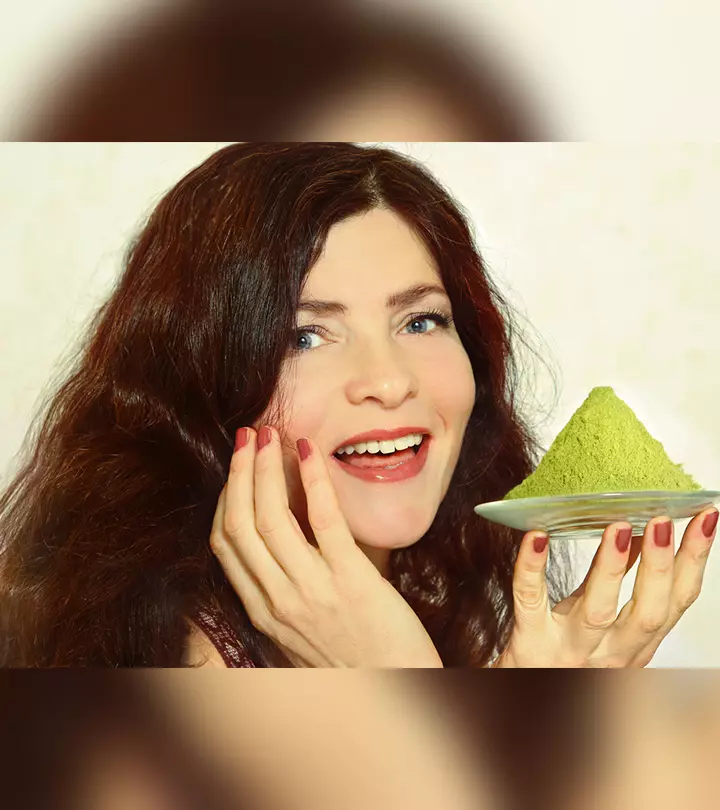

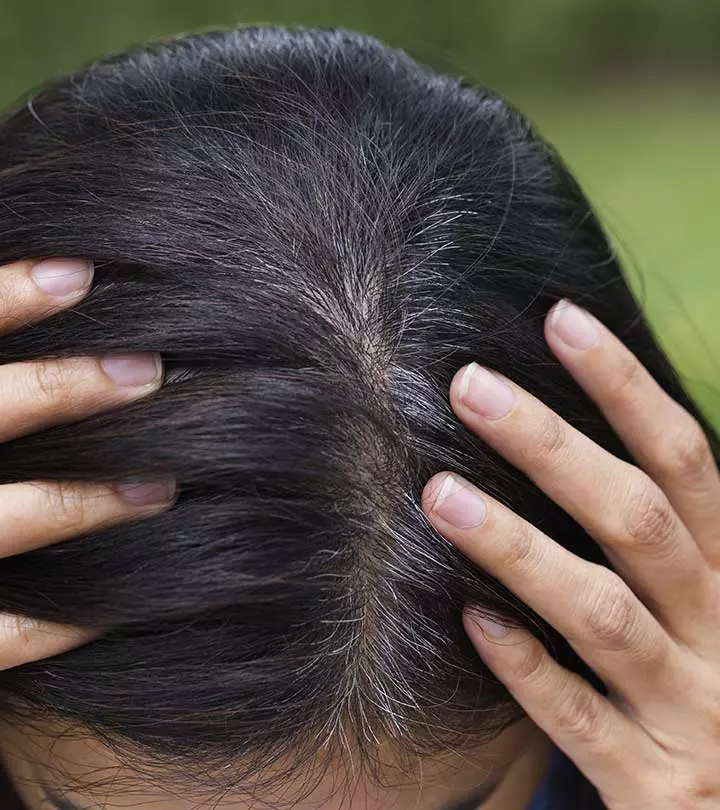



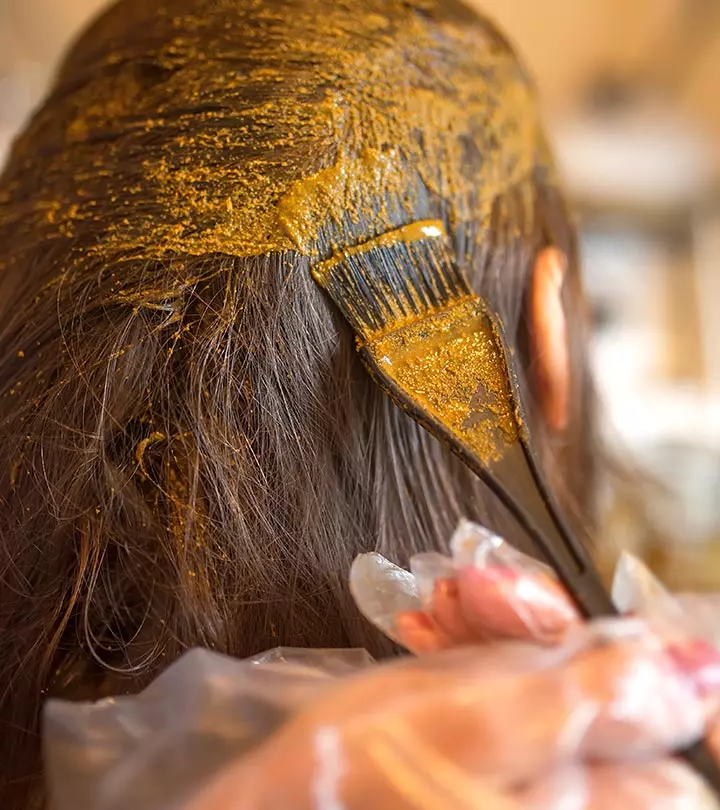
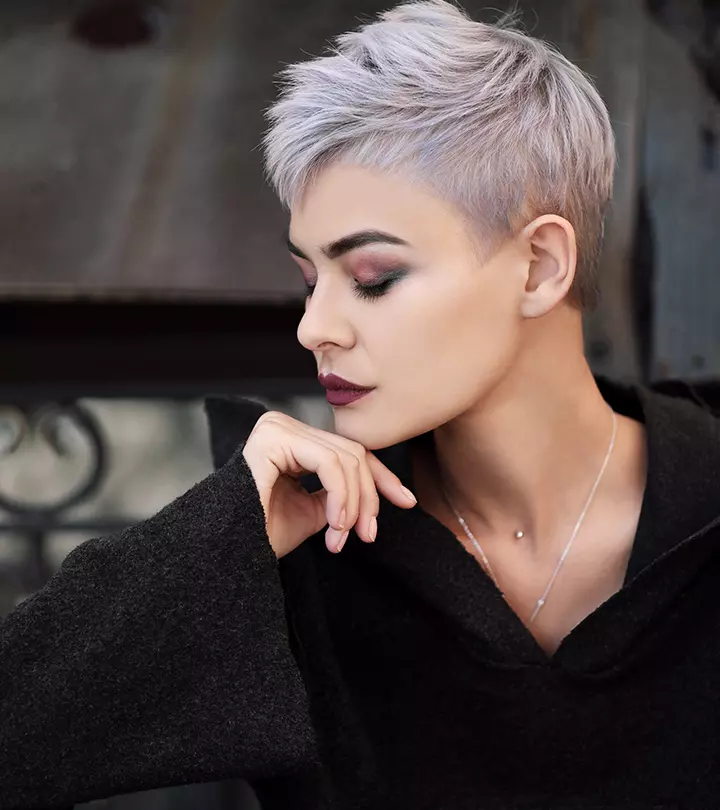
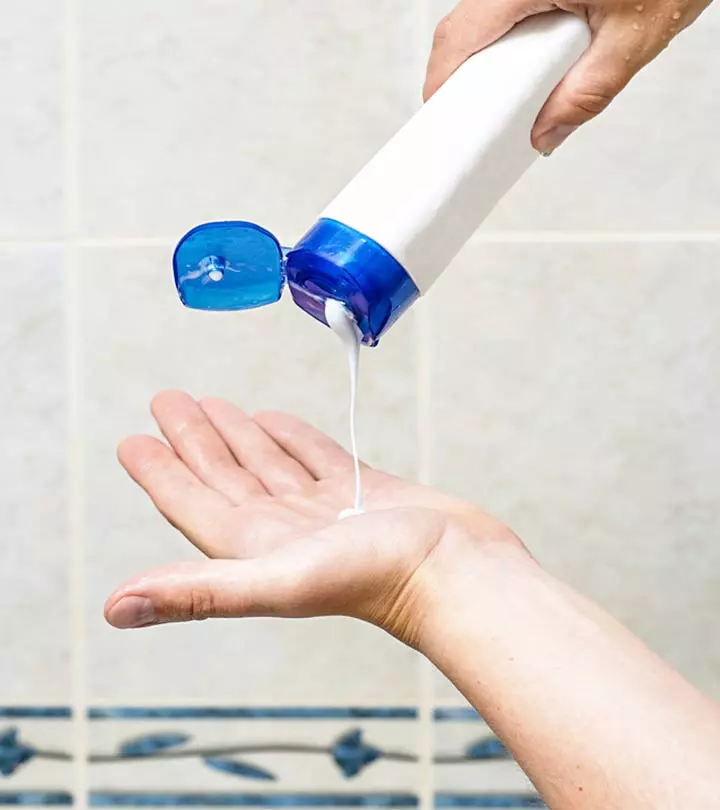
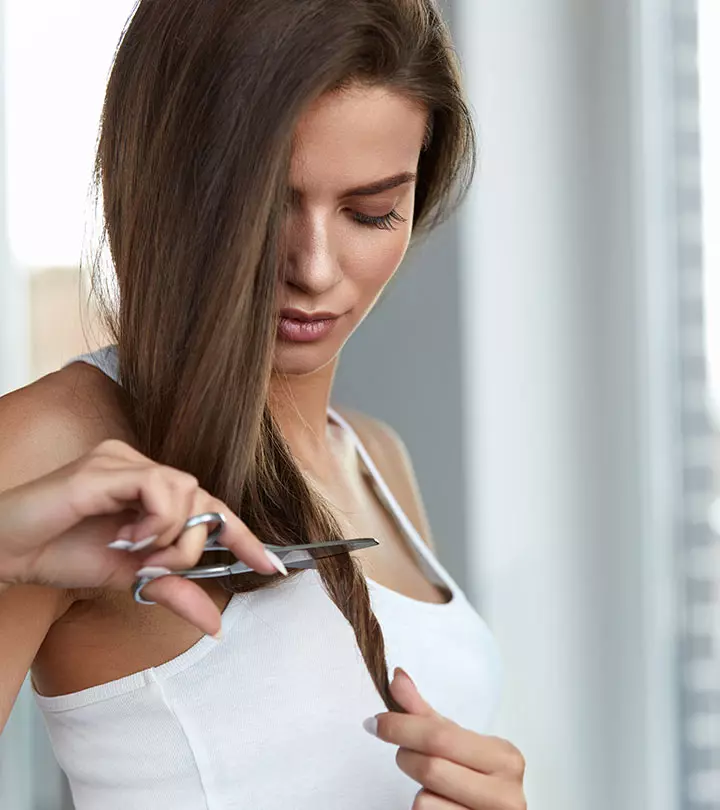



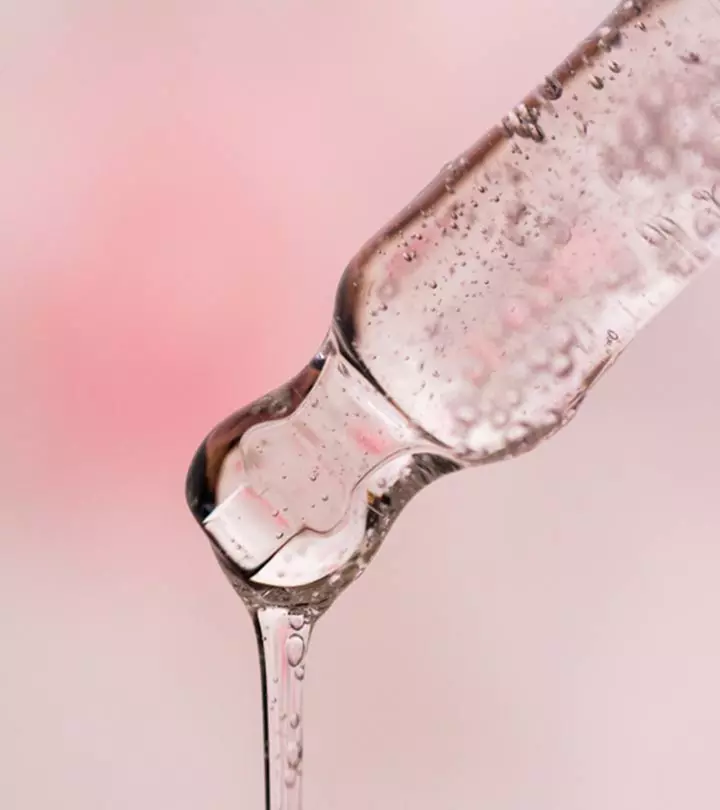
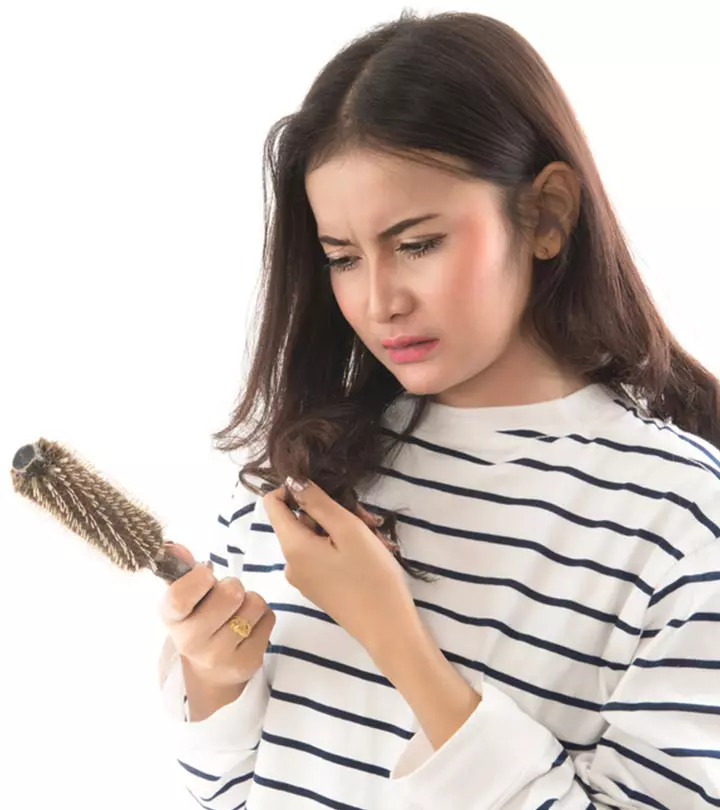

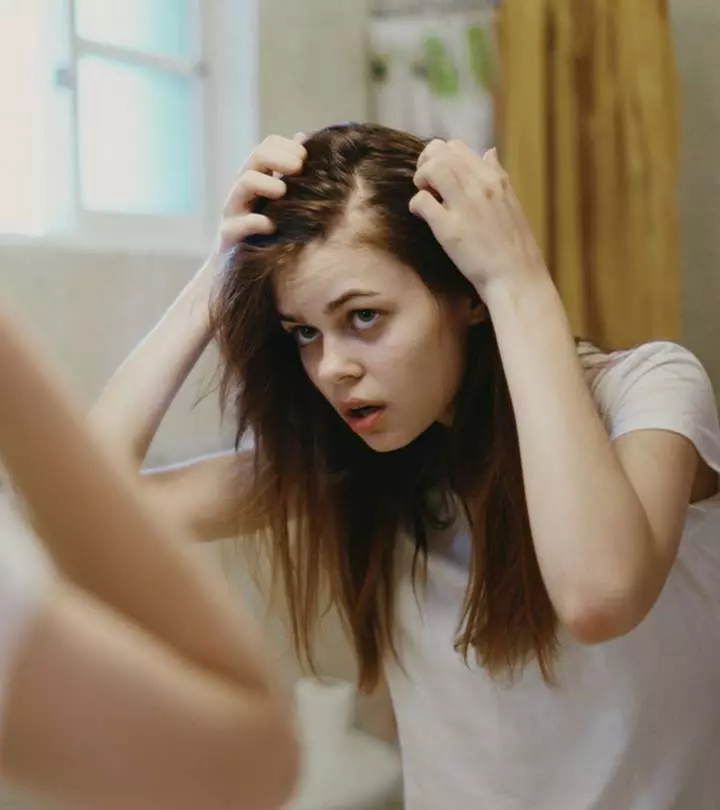


Community Experiences
Join the conversation and become a part of our empowering community! Share your stories, experiences, and insights to connect with other beauty, lifestyle, and health enthusiasts.